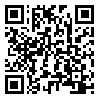BibTeX | RIS | EndNote | Medlars | ProCite | Reference Manager | RefWorks
Send citation to:
URL: http://ijme.tums.ac.ir/article-1-5564-en.html
According to the principle of respect for autonomy, which is one of the essential precepts of medical ethics, patients are entitled to the right of self-determination for a hypothetical future when they may lose the decision-making capacity. Thus, when still adequately competent to make decisions, a person can prepare a document and predict their therapeutic options and state their wishes for the possible time of lack of decision making capacity, or assign a surrogate who will make the best decision considering the attitudes and interests of the patient. This document, called advance directive, has advantages and disadvantages, and has been investigated from different perspectives. The present study addresses this new issue through non-systematic internet and library review of resources, and aims to investigate some aspects of this subject and examine the possibility of its naturalization from certain viewpoints, particularly from the Islamic perspective. In Islam, life is highly respected and physicians are obliged to do their best to protect human life. In cases where patients refuse the suggested treatments, even when it harms them fundamentally, the physician is obliged to respect their wishes for several reasons. Nevertheless, physicians should avoid any direct measure that may end up in the patient’s death. As regards advance directives, the patient no longer has the capacity to make decisions and has done so formerly, which may be in conflict with the physician’s responsibility to save the patient’s life under present circumstances. In such cases, despite a preliminary injunction, there is no reason to extend the patient's right to the time of their consciousness. Therefore, based on the religious principles observed in Iran, acting on the patient's previous decisions can only be valid as long as they do not conflict with the physician’s responsibilities. Furthermore, advance directives currently do not have a place in our legal system and the recognition of such documents is contingent upon further studies, including legal and cultural reviews.
Received: 2015/06/30 | Accepted: 2015/08/30 | Published: 2015/09/5
| Rights and permissions | |
 |
This work is licensed under a Creative Commons Attribution-NonCommercial 4.0 International License. |





